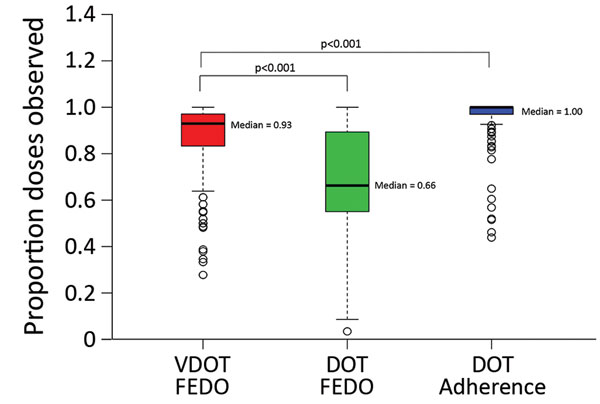Volume 24, Number 10—October 2018
Research
Tuberculosis Treatment Monitoring by Video Directly Observed Therapy in 5 Health Districts, California, USA
Figure 2

Figure 2. FEDO among patients monitored ingesting medication for tuberculosis by VDOT compared with FEDO and adherence for patients monitored using in-person DOT in a study assessing VDOT for monitoring tuberculosis treatment, 5 California health districts, 2015–2016. FEDO assessed by number of complete doses observed through VDOT divided by the number of doses expected. Adherence assessed by number of doses observed through DOT divided by the number of prescribed doses. Because missed or self-administered doses had to be rescheduled, the number of times a dose was expected could exceed the number of doses prescribed. DOT, directly observed therapy; FEDO, fraction of expected doses observed; VDOT, video directly observed therapy.
Page created: September 16, 2018
Page updated: September 16, 2018
Page reviewed: September 16, 2018
The conclusions, findings, and opinions expressed by authors contributing to this journal do not necessarily reflect the official position of the U.S. Department of Health and Human Services, the Public Health Service, the Centers for Disease Control and Prevention, or the authors' affiliated institutions. Use of trade names is for identification only and does not imply endorsement by any of the groups named above.